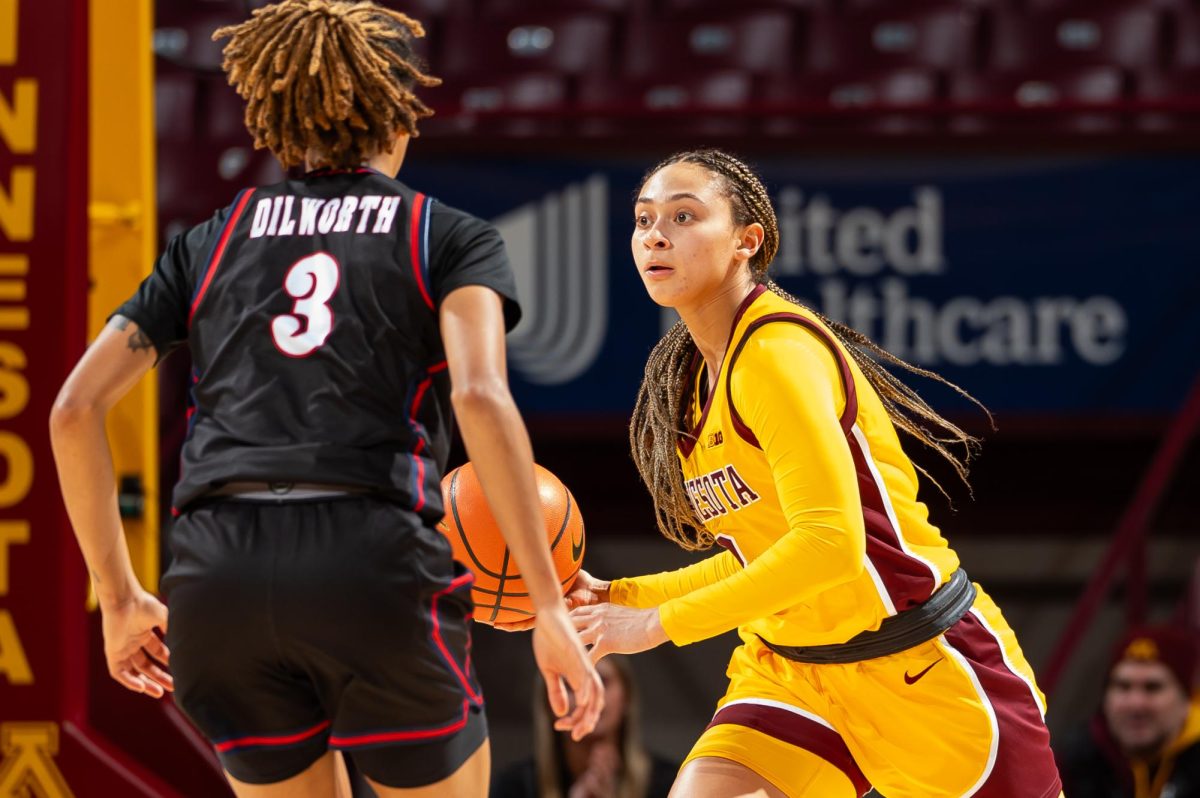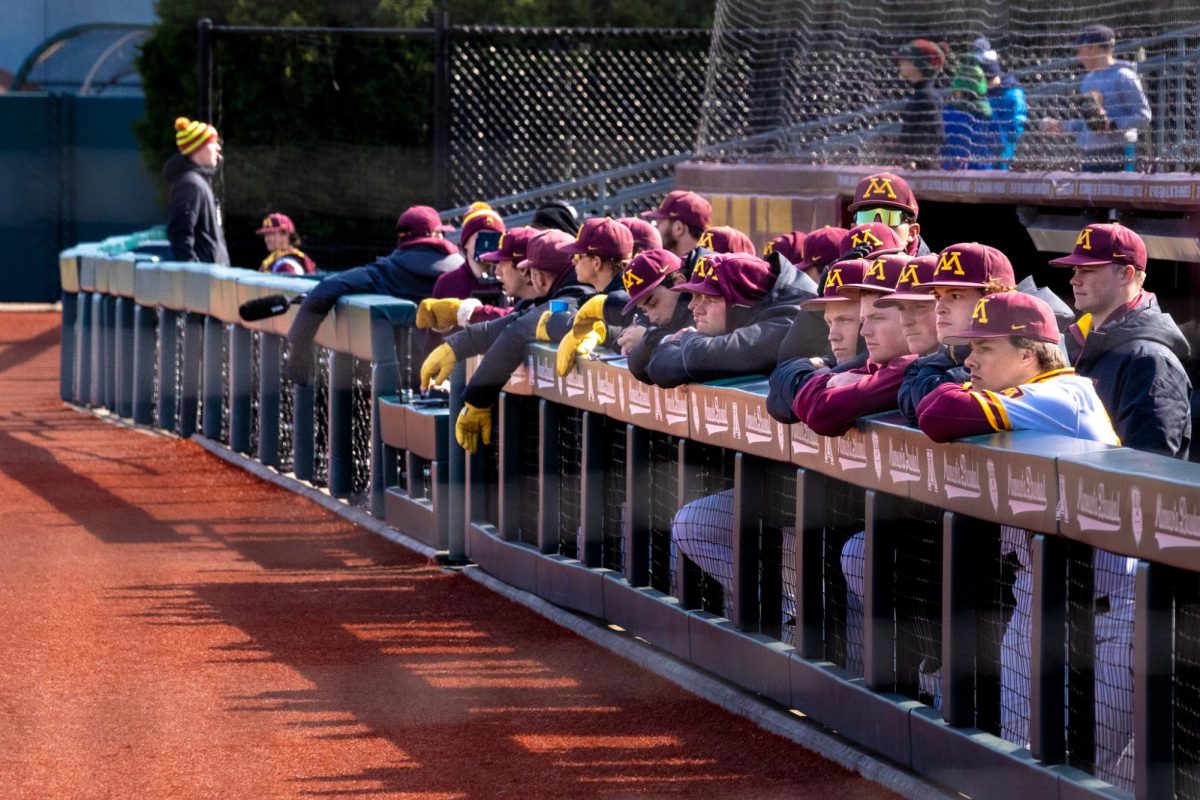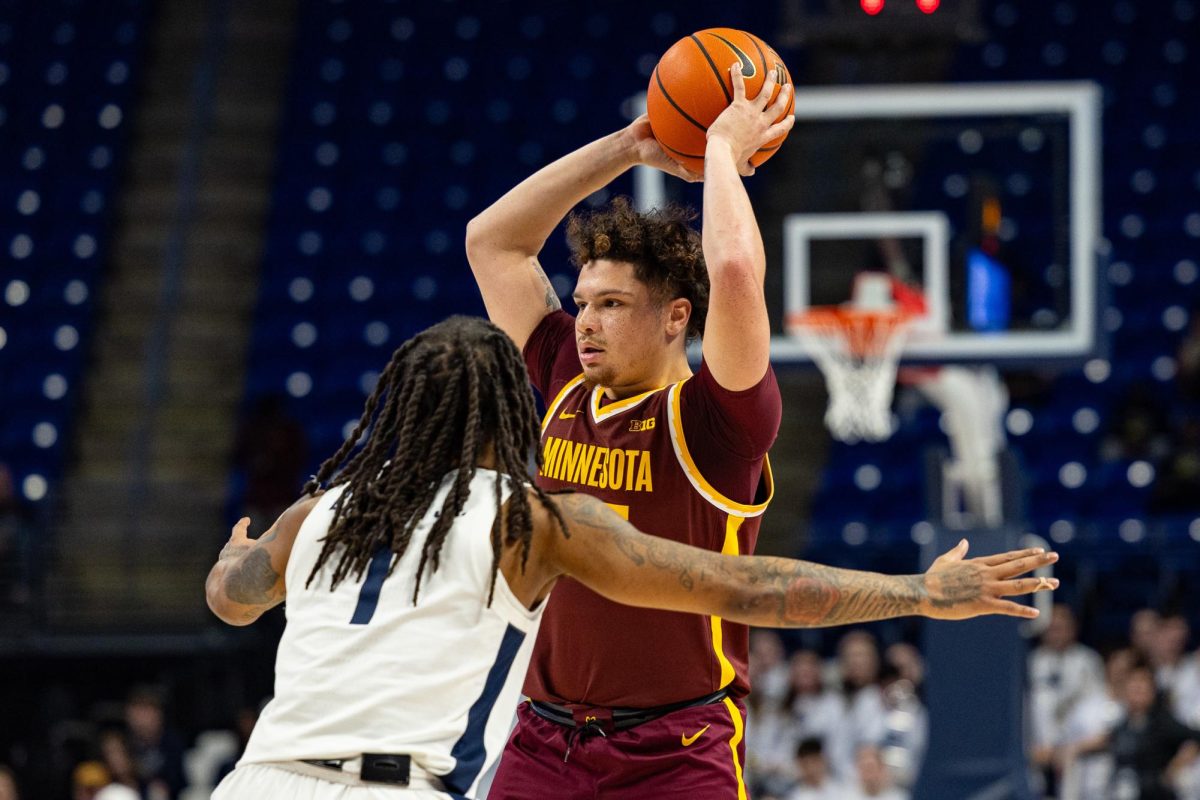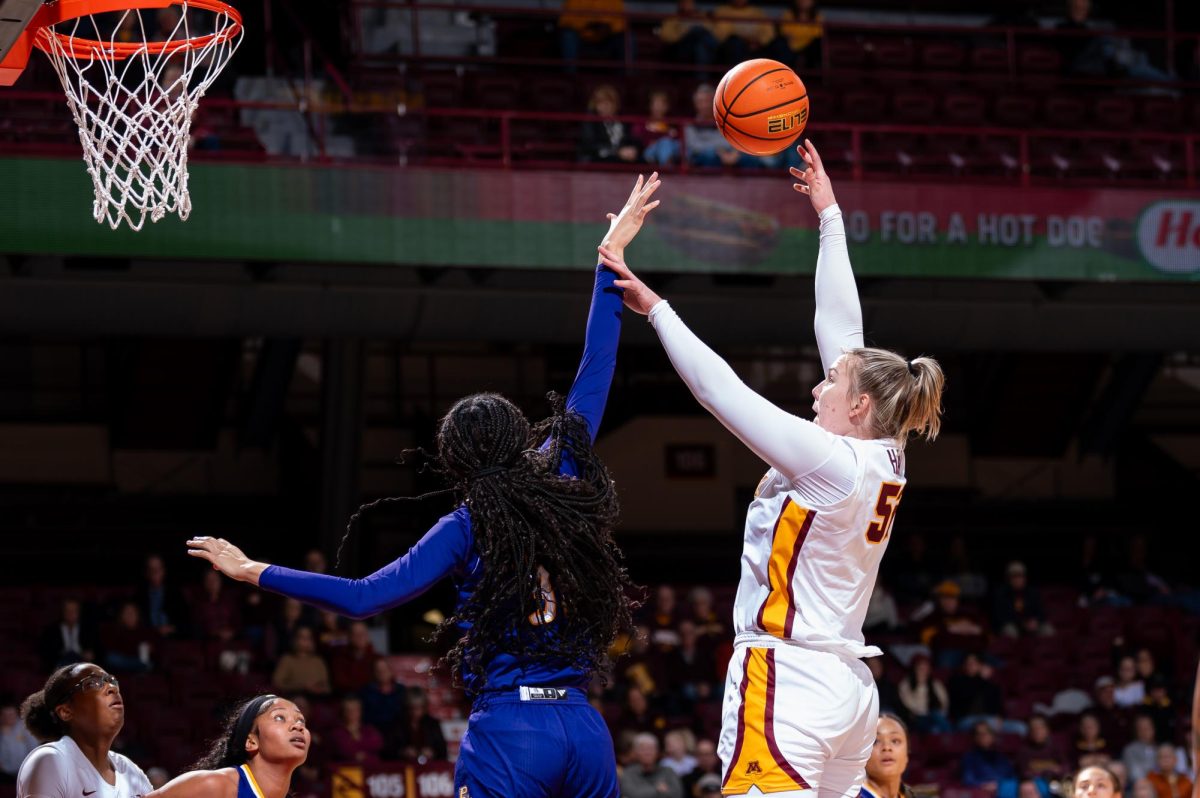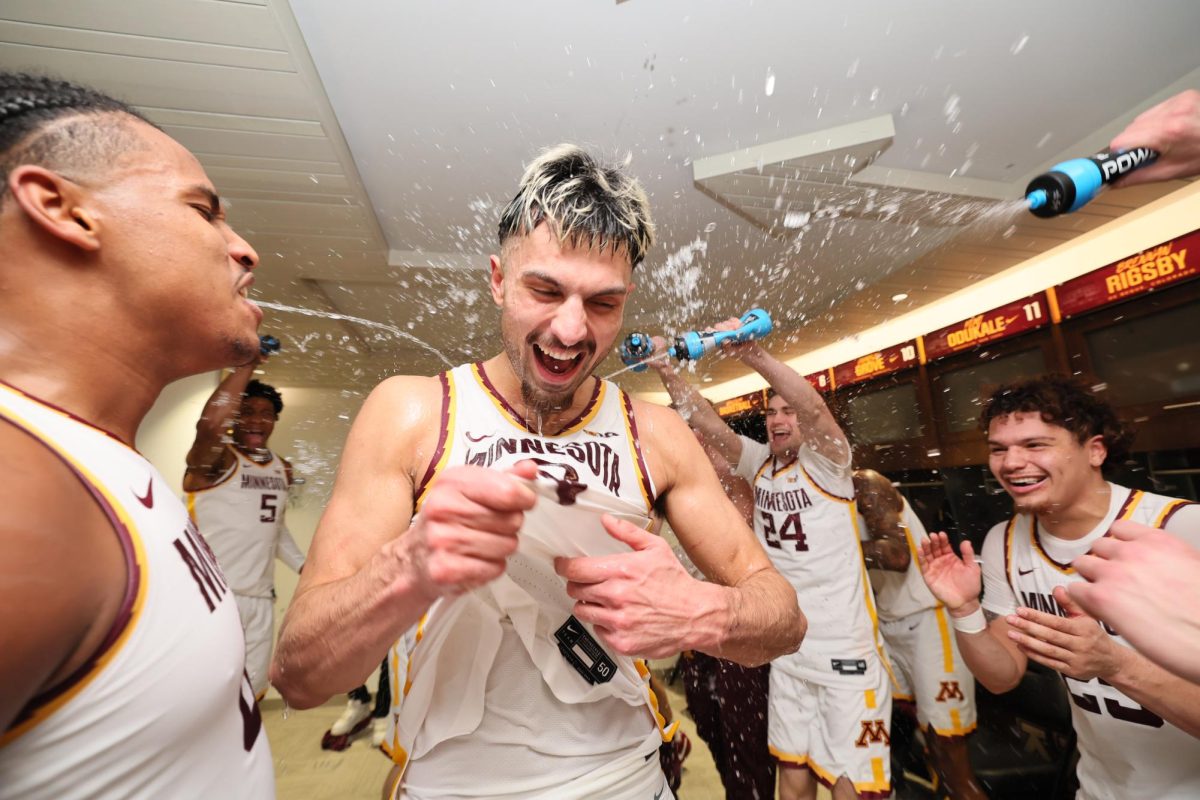As a little girl growing up in the Soviet Union, Nina Cotolupenco’s options were limited.
Without much of a choice of toys, Cotolupenco and her friends would create games for themselves, like drawing circles on the ground with chalk and jumping from circle to circle.
Cotolupenco’s native country, Moldova, broke away from the Soviet Union in 1991.
In 2004 Cotolupenco broke away from Moldova, moving from the chalk circles back home to the hammer throw circles in Minnesota.
Cotolupenco met Minnesota women’s track and field coach Gary Wilson at a junior European Championship, and the coach expressed interest in bringing her back to Minnesota.
“I told him that there were a lot of other people who threw better than me,” Cotolupenco said. “But he was like, ‘I like you, I think you’ll improve.’ “
Cotolupenco picked up the sport from her mother, who was also a thrower.
But persuading her parents to let her go to the United States was difficult. Her parents were very hesitant to allow it, Cotolupenco said.
“There wasn’t a whole lot of talking to the parents because they don’t speak English,” assistant coach Lynne Anderson said. “But through interpretations from people here, and through e-mails, we were able to help them understand that we would take care of her.”
Cotolupenco’s first year at Minnesota was OK. She did well in school and took sixth in the Midwest Regionals with the fourth-best throw in school history.
But last year she took a big step back.
“I lost weight, which is not very acceptable in throwing,” Cotolupenco said. “And I had a hard time with school. I’m getting some more advanced classes here right now, and so it’s kind of hard to study them in a different language. So I was very much stressed about that. And maybe that’s why I lost the weight and didn’t throw that well.”
While she can understand written English well, Cotolupenco’s struggles stemmed from difficulty hearing the new language. A listening class helped her a lot.
“We had homework assignments to watch some TV shows, just different random channels,” Cotolupenco said. “News, weather, anything.”
And that transferred into athletics, Anderson said.
“When you feel good about yourself, then your academics goes better, and then when her academics goes better then her athletics will go better,” Anderson said.
“Because she’s really a very good student, but when you have to interpret or translate everything you do in the first year she was here, that takes a lot of time. Her mental energy was very spent before she even got to practice.”
As she watched television to improve her language skills, she worked harder on her technique to improve her track and field skills.
Anderson said the technique Cotolupenco learned in Moldova wasn’t allowing her to reach her full potential.
“And then she went home the first summer and started working with her uncle, who has more of the philosophy that we have with throwing,” Anderson said. “It took her until this winter to until she was able to adjust to the technique. And now she’s just doing really well.”
In fact, it’s the best she’s done since coming to Minnesota. The past two weekends Cotolupenco has set new personal best marks, good for fourth- and fifth-longest in school history. Now she has just one goal left.
“To get to nationals,” Cotolupenco said. “I think that’s doable.”
Everything else has been.


